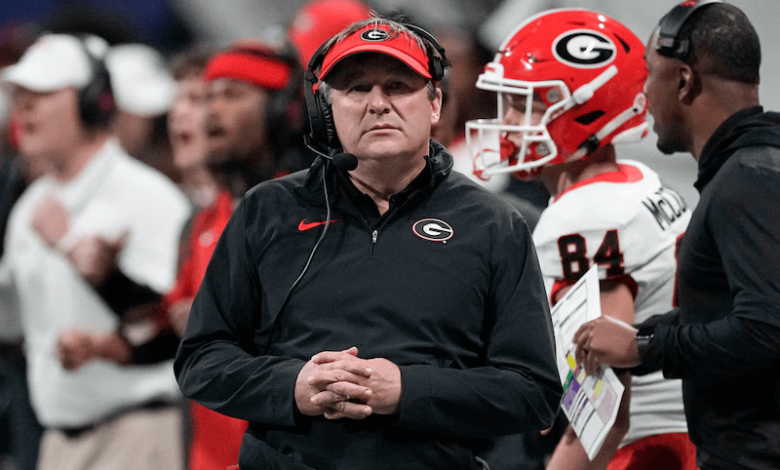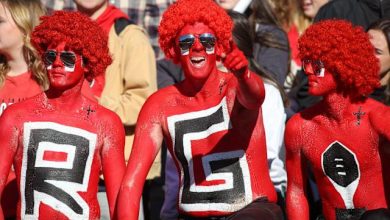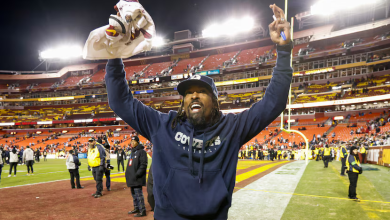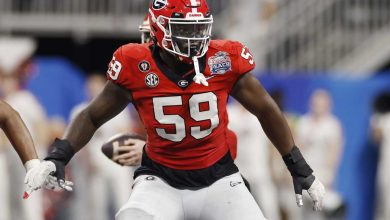Paul Finebaum Calls Out Kirby Smart For ‘Problem’ Facing Georgia in 2025

Paul Finebaum, one of college football’s most well-known analysts, has never been one to shy away from speaking his mind. As a prominent voice on SEC football and a longtime critic of various teams and coaches, Finebaum has often been a central figure in the conversation about the nation’s most successful programs. Recently, however, Finebaum has raised some concerns about the University of Georgia’s football program under head coach Kirby Smart—particularly regarding what he sees as a looming “problem” the Bulldogs will face in 2025.
For years, Georgia has been at the pinnacle of college football, winning multiple SEC titles and National Championships, solidifying Kirby Smart as one of the premier coaches in the country. But with great success often comes high expectations—and Finebaum, known for his analytical and often critical commentary, has pointed to a potential hurdle that could threaten the program’s ability to sustain its dominance. According to Finebaum, that “problem” for Georgia in 2025 is a combination of roster turnover, a shift in college football’s competitive landscape, and Smart’s ability to continue managing his elite program under the weight of these challenges.
Finebaum’s Criticism of Kirby Smart
Finebaum’s criticism of Smart is not necessarily about his coaching ability or the success he’s had in building Georgia into a powerhouse. In fact, Finebaum has often praised Smart for turning Georgia into an SEC and national title contender year in and year out. The problem, Finebaum suggests, lies in the inevitable challenges that come with sustained success—particularly when it comes to player development, roster management, and the changing dynamics of college football.
One of Finebaum’s main concerns is the turnover that Georgia will experience as key players from the 2023 and 2024 rosters depart for the NFL. This turnover is expected to be significant, as Georgia has been loaded with elite talent over the past several seasons. Players such as Jalen Carter, Nolan Smith, and Stetson Bennett, among others, have been integral to the Bulldogs’ dominance in recent years. With these stars leaving for the NFL, Finebaum questions whether Smart will be able to reload with the same caliber of talent that has carried Georgia to national championships.
At the same time, the NCAA’s shifting landscape could complicate matters further. With the growing influence of the transfer portal and changes to NIL (name, image, and likeness) policies, college football has entered an era where roster building is becoming increasingly volatile. For a coach like Smart, whose success has largely been built on consistent recruiting and player development, this new environment presents both an opportunity and a challenge. Finebaum is concerned that Georgia’s reliance on the traditional methods of recruiting and developing talent may no longer be enough to stay ahead of the competition.
Roster Turnover and the Challenge of Reloading
One of the biggest challenges Georgia will face in 2025 is the inevitable turnover of talent that will come with the departure of key players. The 2024 season was an exceptional one for Georgia, with standout performances from players like defensive lineman Jalen Carter, linebacker Nolan Smith, and quarterback Stetson Bennett. These players were essential to Georgia’s back-to-back national championships, and replacing them will not be an easy task.
Finebaum points out that while Smart has established an elite recruiting pipeline, even the best recruiting classes take time to develop. The players who are currently coming up behind the Bulldogs’ stars are talented, but they may not have the experience necessary to immediately step into the roles left vacant by departing players. The learning curve for new players—especially on defense, where Georgia has been dominant in recent years—will be steep.
Replacing a player like Jalen Carter, who is widely regarded as one of the best defensive linemen in the country, will be a massive task for Georgia. Carter’s ability to disrupt the passing game and dominate in the trenches has been a cornerstone of Georgia’s defense. Finebaum acknowledges that Smart has a talented defensive roster coming in, but questions whether anyone will be able to replace Carter’s unique skill set right away. Similarly, Nolan Smith’s leadership and playmaking ability on the edge will be difficult to replicate.
On offense, the departure of Stetson Bennett, who led Georgia to back-to-back national titles and played in one of the most storied careers in school history, also presents a unique challenge. While Bennett may not have been the most highly touted quarterback in college football, his poise, decision-making, and leadership were key to Georgia’s success. Finebaum wonders whether Georgia can continue to perform at the same level without Bennett under center. The Bulldogs will likely need a new quarterback to step up, and while they have several talented options, the transition from a multi-year starter like Bennett will require a great deal of adjustment.
The turnover in both the offensive and defensive units leaves Smart with a critical task: reloading quickly while maintaining the high standards that have come to define Georgia football. Finebaum argues that the pressure will be on Smart to ensure that the next generation of Georgia players is ready to step up and deliver immediately.
The Impact of the Transfer Portal and NIL
The landscape of college football has changed significantly in recent years with the introduction of the transfer portal and NIL rights. Finebaum believes that these changes, while offering new opportunities for players, could also present challenges for programs like Georgia that have traditionally relied on recruiting high school talent and developing it over time. While Georgia has certainly taken advantage of the transfer portal to some extent, Finebaum questions whether Smart’s system will be able to adapt to this new reality quickly enough.
The transfer portal allows players to leave their current programs and join new ones with relative ease, leading to more player movement across college football. For a program like Georgia, which has a deep roster of highly recruited players, the transfer portal could work in two ways. On the one hand, it allows Georgia to potentially add instant-impact players to fill immediate needs. On the other hand, it creates the risk of losing key players who may be unhappy with their role or seeking a fresh start elsewhere. Finebaum wonders whether Georgia, despite its success, will be able to hold onto its best players in the face of the portal’s temptations.
NIL, meanwhile, has introduced a new dynamic into college football recruiting. Schools with the most lucrative NIL deals can now offer players significant financial incentives to join their programs, which could lead to more competition between programs like Georgia and others, particularly those with deep financial backing. Finebaum suggests that while Georgia has made strides in its NIL efforts, the Bulldogs may not have the same financial clout as some other schools, such as Texas or Alabama, which could potentially impact their ability to secure the most sought-after recruits.
Smart has already shown his ability to adapt to changes in the college football landscape, but Finebaum believes that the transfer portal and NIL could present new hurdles for Georgia that the program hasn’t yet fully navigated.
Maintaining Georgia’s Dominance
Despite these challenges, Finebaum acknowledges that Kirby Smart is one of the best coaches in college football and is more than capable of overcoming adversity. Smart has already led Georgia to two national championships and has built a program that is consistently among the most talented in the country. But Finebaum’s concern is that the combination of player turnover, changing recruiting dynamics, and the pressure of maintaining elite success could present a more difficult task for Georgia in 2025 and beyond.
The Bulldogs are in a prime position to remain one of the top teams in college football, but Smart will need to continue to evolve as both a recruiter and a coach. As Finebaum points out, there is no program that is immune to the pressures of sustaining success. Georgia’s future will depend on Smart’s ability to manage roster turnover, continue developing talent, and adapt to the changing college football landscape.









